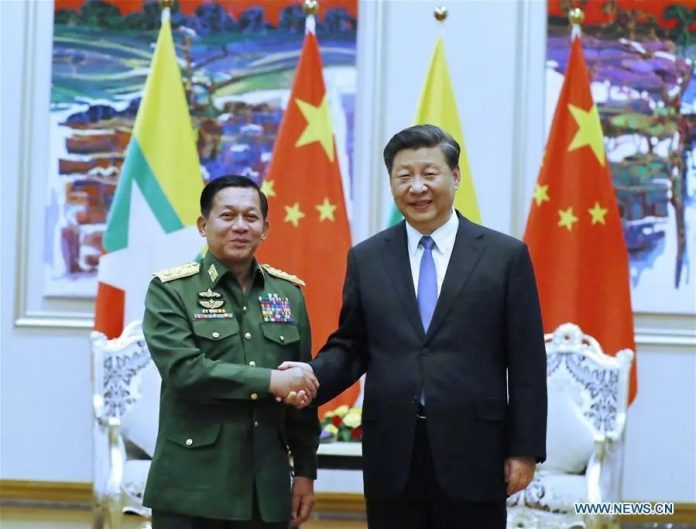In recent years, China’s international activities have painted a disturbing picture of a nation willing to flout international norms, engage in widespread espionage, and exploit vulnerable countries to further its geopolitical ambitions. From the resource-rich lands of Africa to the strategic outposts in the Caribbean, Beijing’s actions reveal a pattern of behavior that poses a significant threat to global security and stability.
In Africa, China’s predatory practices have become increasingly apparent, with the recent suspension of a Chinese mining company in the Central African Republic (CAR) serving as a stark example. The CAR government accused Daqing SARL of collaborating with armed militias, a charge that exposes the dark underbelly of China’s economic engagement in Africa. This is not merely a case of corporate malpractice; it represents a deliberate strategy of exploiting political instability for economic gain. By cooperating with armed groups, Chinese companies like Daqing SARL undermine legitimate governance and perpetuate cycles of violence and corruption that have long plagued many African nations.
The charges against Daqing SARL are damning: illegal mining, unauthorized introduction of foreign subjects into mining areas, tax evasion, and failure to provide activity reports. This laundry list of offenses underscores China’s blatant disregard for local laws and sovereignty. It’s a modus operandi that China has perfected across the continent – extracting resources with little concern for environmental regulations, labor rights, or the long-term economic well-being of host countries.
The situation in Zambia further illustrates the multifaceted nature of China’s malign influence. The conviction of 22 Chinese nationals for cybercrimes, including internet fraud and online scams, reveals a sophisticated criminal network operating under the nose of local authorities. The scale of the operation is staggering: over 13,000 local and foreign mobile phone SIM cards, firearms, and ammunition were seized in the raid. This case demonstrates how Chinese criminal elements exploit weak regulatory environments in developing countries to conduct large-scale illegal activities. It’s not just about economic exploitation; it’s about undermining the very fabric of society in these nations.
Moving to Europe, China’s espionage activities have taken on a more traditional form, as evidenced by the arrest of a Norwegian man charged with spying for China. This incident in Oslo highlights Beijing’s relentless pursuit of intelligence, even in countries where it has no apparent strategic rivalry. The fact that Norway, a relatively neutral country, has become a target for Chinese espionage speaks volumes about the breadth and audacity of Beijing’s intelligence-gathering efforts. It’s a stark reminder that no nation is immune to China’s prying eyes and that even seemingly benign business or academic relationships can be exploited for intelligence purposes.
Perhaps the most alarming development in China’s global machinations is the evidence of its growing intelligence capabilities in Cuba. The satellite imagery analyzed by the Center for Strategic and International Studies (CSIS) reveals a network of facilities that could significantly enhance China’s ability to spy on the United States. The upgrades to four military bases in Cuba, including sites near Havana and close to the U.S. naval base at Guantanamo Bay, represent a clear and present danger to U.S. national security.
The Bejucal site, with its history dating back to the Cuban Missile Crisis, has been transformed into a cutting-edge signals intelligence monitoring station. The installation of new electronic antenna enclosures and other sophisticated equipment suggests a significant leap in China’s ability to intercept and analyze electronic communications. Similarly, the upgrades at Wajay and Calabazar, with their new antennae and radar dishes, indicate a concerted effort to monitor satellite communications and potentially interfere with U.S. military and civilian infrastructure.
The construction of the El Salao site near Guantanamo Bay is particularly troubling. With an antenna array potentially capable of tracking signals up to 15,000 kilometers away, this facility could provide China with unprecedented insight into U.S. military operations in the region. The strategic location of these bases allows China to monitor a wide range of U.S. activities, from military exercises and missile tests to submarine movements and satellite communications.
China’s investment of billions of dollars in Cuban intelligence infrastructure underscores the strategic importance Beijing places on establishing a robust presence in America’s backyard. This is not merely about gathering intelligence; it’s about projecting power and challenging U.S. dominance in its own hemisphere. The potential for these facilities to intercept sensitive military and commercial data poses a severe threat to U.S. national security and economic interests.
Beijing’s dismissive response to these allegations, calling them “slander” and accusing the U.S. of hypocrisy, is typical of its wolf-warrior diplomacy. However, this rhetorical deflection cannot obscure the mounting evidence of China’s global campaign of espionage and interference. From Africa to Europe to the Americas, China’s actions reveal a consistent pattern of disregard for international norms, sovereignty, and the rule of law.
The implications of China’s activities extend far beyond the immediate security concerns. By undermining democratic institutions, exploiting economic vulnerabilities, and challenging the existing international order, China is positioning itself as a revisionist power intent on reshaping the world in its authoritarian image. Its predatory economic practices in Africa saddle developing nations with unsustainable debt while extracting valuable resources. Its cyber-espionage activities steal intellectual property and undermine technological competitiveness. Its military posturing and intelligence gathering threaten to destabilize regions and alter strategic balances.
As the international community grapples with the China challenge, it is clear that a more robust and coordinated response is necessary. The diverse nature of China’s malign activities requires a comprehensive strategy that addresses not only immediate security threats but also the long-term economic and political implications of Beijing’s actions. This may include strengthening international alliances, enhancing cybersecurity cooperation, providing alternative development models for vulnerable nations, and maintaining a strong military deterrent.
China’s global activities represent a multi-faceted threat to international stability and security. From illegal mining practices in Africa to sophisticated intelligence operations in Cuba, Beijing has shown a willingness to flout international norms and undermine the sovereignty of other nations to advance its interests. As China continues to expand its global footprint, the world must remain vigilant and united in confronting this growing menace to peace, prosperity, and democratic values.








































